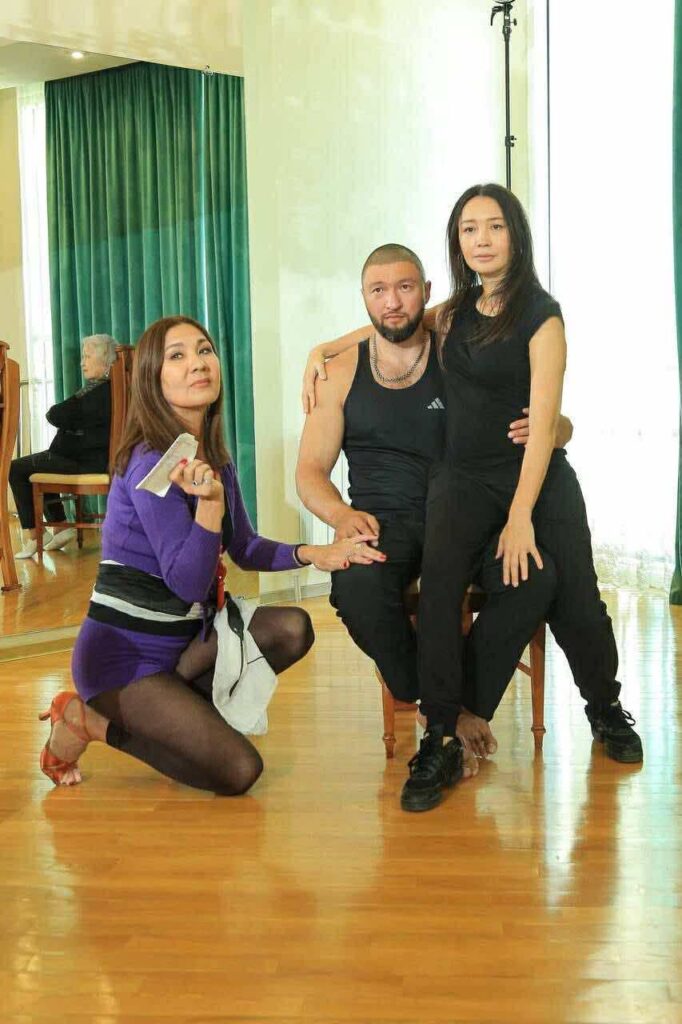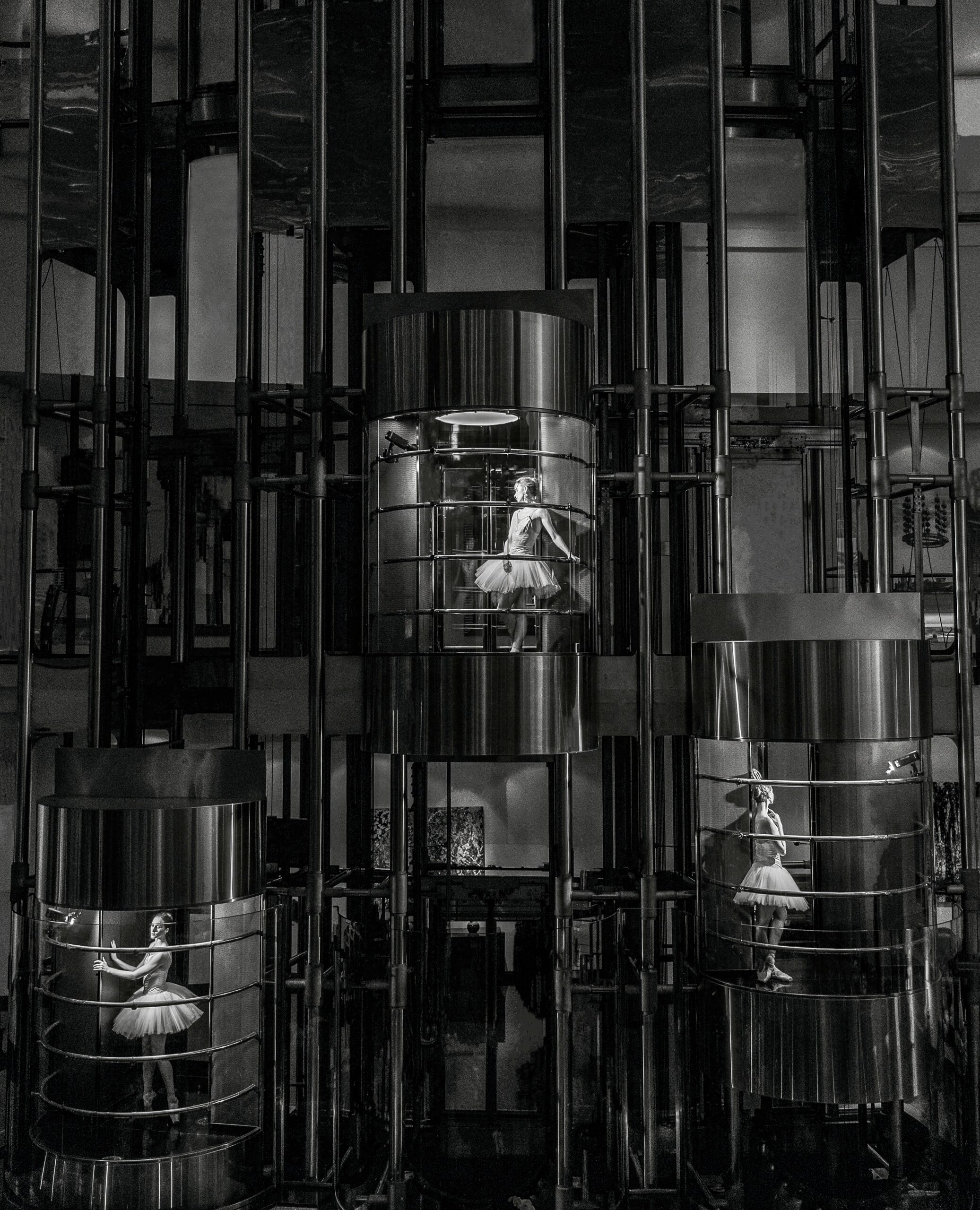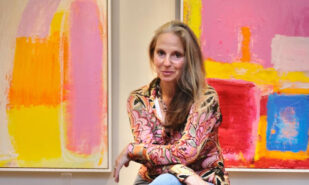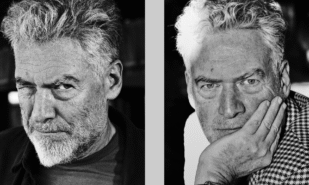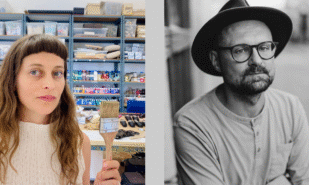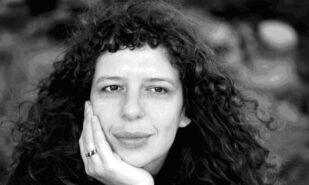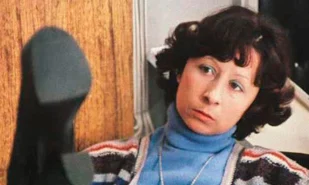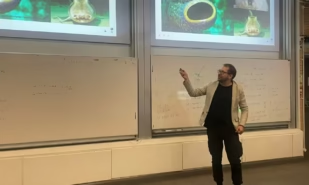Askhat Maemirov and Shynargul Kabysheva: “It’s important not to forget to remain human!”
The private theatre The Arts Stage from Kazakhstan is bringing the play “The Black Cloak” by Georgy Khugaev to London. The performances will take place at The Shaw Theatre. Ahead of the tour, we spoke with director Askhat Maemirov and actress and London-based producer Shynargul Kabysheva about the idea behind “The Black Cloak” and their work on the production.
You’re bringing such a tragic, heavy parable-like story to London. Why this choice of play?
Shynargul Kabysheva:
It was my idea. Askhat Maemirov has staged this play before. I had seen “The Black Cloak” several times, but it was after Askhat’s production that I said: “This show should be performed in Europe.” It’s a story about animals — and we know how deeply Europeans care about the animal world — so it was clear that it would touch audiences’ hearts. The theme is universal: there are no social or religious boundaries, no divisions.
Askhat, why do you keep returning to this play, finding new layers in it every time?
Askhat Maemirov:
Giorgio Strehler, the famous Italian theatre reformer, wrote a book called “Theatre for the People.” Theatre is, in essence, the study of humanity. Our production is about people — and for all people. As Shynargul rightly said, there are no ethnic or religious accents here.
We use elements of irrational and emotional theatre. The audience becomes a participant, a witness to the events — and that always makes one think. And now, more than ever, we need to think.
Of course, today there are productions that move or inspire, but very few that truly engage the mind. After our show, people will think for a long, long time — and that’s a precious process. I’m certain “The Black Cloak” will stay in the audience’s memory.
Shynargul Kabysheva:
It’s a difficult time now; so much is happening… Through social media we have access to all kinds of information, and we can see how much the world has hardened. Yet many people are still pleading, asking, demanding — goodness, peace, love.
And that’s exactly what our play is about: the importance of not forgetting to remain human, to do good, to love.
There are animals on stage, but do they feel the same as humans?
Askhat Maemirov:
Absolutely! There’s a sort of stereotype: when someone is strong, wise, full of energy — we expect help from them. But when something happens and they fall on hard times — we forget them.
In our play, too, we talk about valuing such people, about not forgetting kindness. People’s way of life needs to change.
Shynargul Kabysheva:
Askhat first staged Khugaev’s play about twenty years ago — this theme was born back then. It’s a Shakespearean, timeless theme, one you can keep coming back to.
I believe that in the Soviet era we had many talented playwrights and powerful plays that the world still doesn’t know well. The classics — Chekhov, Dostoevsky — are famous, but Khugaev, in my view, is a 20th-century classic. I hope our production will be a first encounter for London audiences with the drama of our region.
Is this the theatre’s first tour in London?
Shynargul Kabysheva:
Yes, it’s our first time bringing the production here — and not as part of a festival, but as the first real tour of The Arts Stage in the UK. Naturally, we’re very nervous. The London audience is diverse, multicultural, multilingual — and we’re performing not just for Kazakhs, but for everyone.
That’s what makes it so exciting and intriguing! Such a mix of spectators — how will they respond to us? We’re all human, despite our different nationalities and cultures… Yet everyone perceives things differently, depending on their mentality, psychology, upbringing, and birthplace.
Askhat Maemirov:
For Eastern peoples, the genre of the parable is sacred. Throughout history, wise storytellers used parables to explain important truths. These stories were passed from generation to generation: “Take heed, humanity,” they would say, “if you don’t listen to us, if you don’t hear the voices of your ancestors, you’ll repeat the tragedies of the past.”
Now, across the world, materialism has become the dominant cult. We know that past millennia were the age of the spiritual human; I believe the coming ones must become the era of the rational human.
Productions like ours should help people remember and rediscover spiritual values. Among nomads — and we come from Kazakhstan, from the Great Steppe! — the highest ideals were honor, loyalty, and kindness. Material wealth was never the goal; spiritual richness mattered most.
In the play, the main character, the dog Tuzar, guards his master’s cloak all winter in the mountains after the man forgets it there. But he guards not the garment — he guards the man’s spirit, his soul. And in the end, the man says to him: “You were a good dog when you guarded the herds and fought the wolves. But now you’re no longer the dog I need — so I’ll kill you!” And he does…
And the wild creatures ask Tuzar: “Who did you serve, Tuzar, that man?!” And Tuzar replies: “I served — humanity.”
The main message of the parable is to love all humankind, to honor and protect integrity, spirit, and faithfulness. These are the values that will bring us closer to the era of the rational human.
The protagonist constantly faces a difficult choice — between love and duty. What should he choose?
Askhat Maemirov:
He chooses duty. For him, duty to people, to humanity, is paramount — because behind that choice lies responsibility. It’s a civic stance. For me, it’s vital that the audience not sit passively, but become witnesses, participants — to engage inwardly in a dialogue with the actors, to sometimes disagree, to protest, to see the play from multiple sides.
Today, with the rhythm of life transformed by artificial intelligence, digitalization, and virtual worlds, it’s still crucial that humans can, figuratively speaking, touch truth — see good and evil with their own eyes.
After performances, I sometimes ask the audience a question: inside every person there are two wolves — one evil, one good. Which one is stronger? In truth, the one you feed. If you nourish yourself with kind thoughts and creative deeds, the good wolf always wins. But if you feed hatred, envy, petty grievances — the evil wolf takes over. Then a person becomes helpless, passive, blaming everyone but themselves.
That sounds a bit like a childish attitude, doesn’t it?
Askhat Maemirov:
Exactly — and that attitude doesn’t satisfy me at all. That’s why our hero fights. As I often say, by the finale he should remain in the audience’s memory like a monument — like Hachiko.
Shynargul Kabysheva:
We all perceive the world differently, but sometimes our heart — our seventh sense, our intuition — tells us that things aren’t as simple as they seem. Rationality and emotion are always in conflict: feelings say one thing, the mind another. And our play is a living being too — its goal is to maintain a living dialogue, to truly communicate with the audience.
I don’t want to reveal all the details now… Come and see the play, and you’ll understand!




